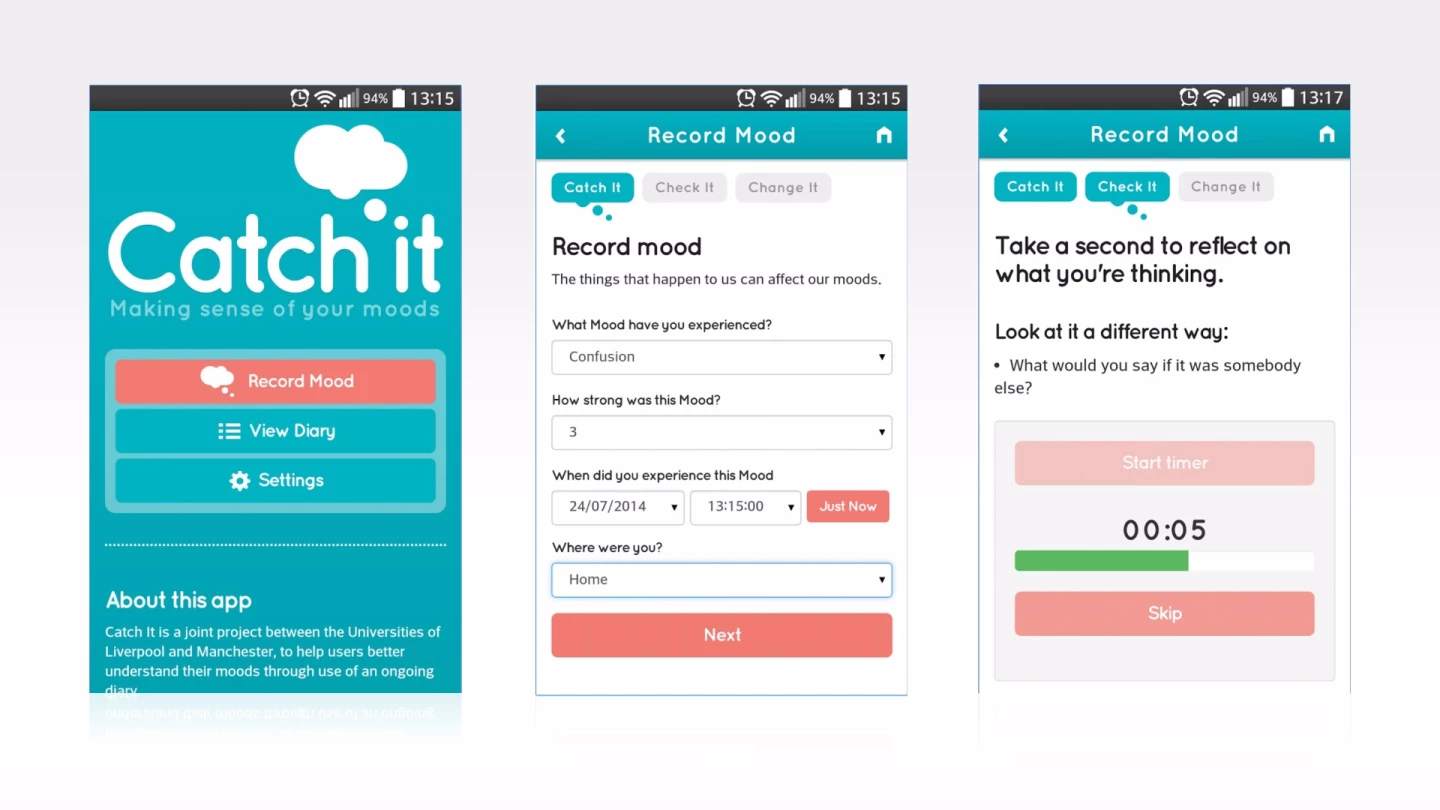Apps that claim to be able to help with depression and other mental health issues aren't uncommon, but it's difficult to know whether they're actually providing effective treatment. Now, researchers have looked to gain some concrete information as to how helpful an app can be for patients tackling anxiety and/or depression. The results of the study were positive, but they aren't necessarily indicative of mental health apps as a whole, where a lack of regulation has made it extremely difficult to pick out software that can be trusted.
Mental health issues are extremely common, with an estimated 350 million people currently suffering from depression across the globe. According to the World Health Organization (WHO), it's one of the leading causes of disability worldwide.
If you're looking to change that then smartphones, of which there are billions of users, seem like a pretty good platform to approach. If you search for mental health help apps on major app stores right now, you'll find a lot of software that claims to be able to offer reliable treatment, but it's practically impossible to know which apps are actually equipped to help.
Furthermore, it's easy to imagine that using an app made by people who don't fully understand a condition, could actually make things worse for the user.
A new study, conducted by researchers at the University of Liverpool and the University of Manchester in the UK, is looking to provide a little validation. The team worked with an app developed by the two institutions, called "Catch It." It's designed to tackle mental health and well-being issues using a tried and tested method, called Cognitive Behavioural Therapy, or CBT.

CBT is a commonly-used treatment designed to help patients manage their mental health problems by attempting to change the way they think and behave. Taking the form of an ongoing diary, the idea is to get users to identify particular ways of thinking that may lead to mood changes. They then assess whether the way of thinking is positive, before being encouraged to consider other thought processes that might be more helpful.
The results of the study showed that of the 285 people that downloaded the app and consented to have their data accessed for the study, the majority used it more than once. Furthermore, the diary content that users generated was consistent with the basic concepts of CBT, indicating that the smartphone-based treatment was working as intended.
Most importantly, using the app resulted in significant reductions in negative mood intensity and increases in positive mood intensity.
"Smartphone apps have potential beneficial effects in mental health through the application of basic CBT principles," said the University of Liverpool's Professor Kinderman. "More research with randomised controlled trial designs should be conducted."
The big picture
While the results of the "Catch It" app study were indeed positive, there are significant problems with smartphone-based mental health applications as a whole.
Simply put – jumping into an app store and downloading the first app that claims to be able to help deal with mental health issues is likely not a good idea right now, and while it could become a viable option down the line, the current situation is far from ideal.
There are individual examples of apps being effective when it comes to mental health. One such app is PTSD Coach, which as its name suggests, is designed to help people cope with post-traumatic stress disorder.
Developed as a partnership between the US Department of Defense and the US Department of Veterans Affairs' National Center for PTSD, the application has been downloaded more than 150,000 times in more than 80 countries. In 2014, a study found that 80 percent of users found the application helpful for dealing with the condition.

On a broader scale however, the situation is much murkier. The UK's National Health Service (NHS) started a project in 2013 called the Health Apps Library, designed to highlight safe apps to patients.
The initiative ran into problems, with just four of the 14 apps recommended for coping with depression and anxiety backed up by any patient studies of effectiveness. The University of Liverpool study that highlighted the issue claimed that the effectiveness of more than 85 percent of the apps recommended by the NHS for mental health treatment, is simple impossible to determine given the available data.
The program is currently on hold while the NHS considers "how a wider endorsement model for patient-focused health apps could be put in place."
That same study also highlighted the issue more broadly. It found that while there were more than 1,500 apps available in 2013 that claimed to help deal with depression, only 32 academic articles had been published on the subject.
The root of the problem is that medical apps are currently under-regulated. Taking the United States as an example – not only does the US Food and Drug Administration (FDA) not differentiate between "health" and "wellness" applications, but it only regulates medical apps that are either "intended to be used as an accessory to a regulated medical device," or that "transform a mobile platform into a regulated medical device."
For apps that diagnose conditions such as depression, and provide things like behavioural techniques to help cope with them, the agency uses its "enforcement discretion," which basically means it'll rarely, if ever, feel the need to get involved.
So, should you be using smartphone apps to deal with mental health issues like anxiety and depression? Right now, it's best to exercise caution. Studies of apps like "Catch It" prove that the concept can work, but with the vast majority of apps receiving zero validation as to whether they actually work, app stores are currently minefields of untested apps that are in no way guaranteed to help users.
Full details of the University of Liverpool study on the Catch It app are published online in the journal BJPsych Open.






